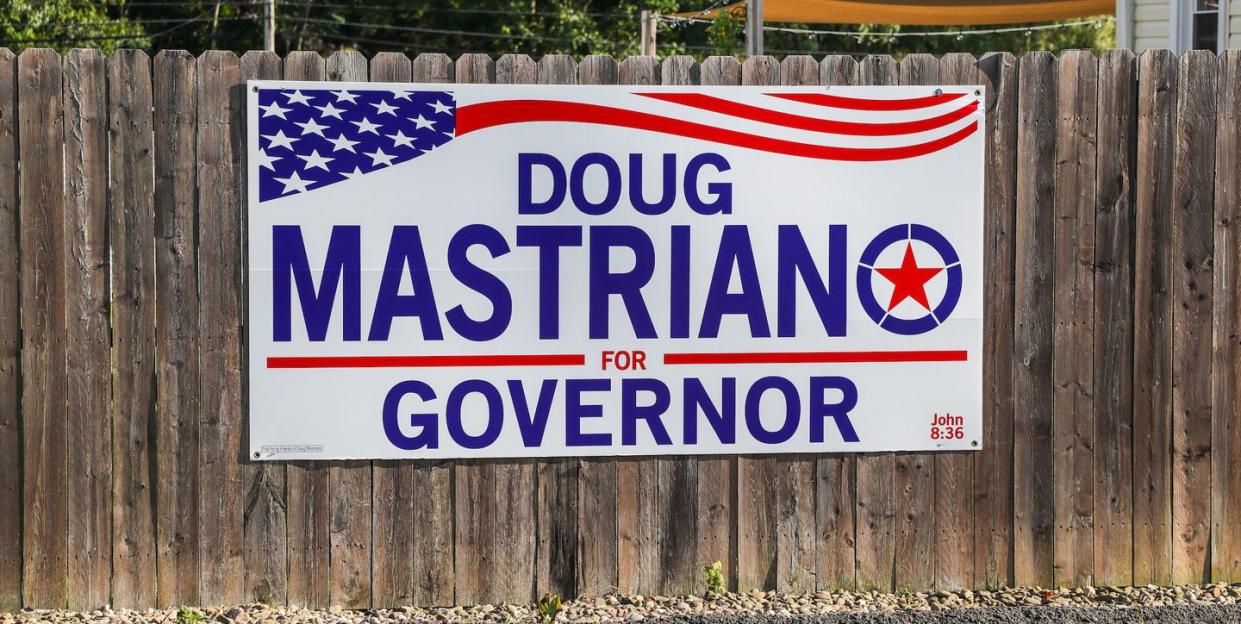Stop Calling Anti-Democratic Candidates 'Election Deniers'

Amy Gardner of the Washington Post has put together a sobering look at the triumph of anti-democracy among Republican nominees who will contest elections in swing states this November. The GOP picks for governor in Arizona, Michigan, Pennsylvania, and Wisconsin all continue to entertain the loco notion that there was election fraud in 2020 significant enough to call the results in these states—and thus Donald Trump's loss—into question. The same goes for the nominees for secretary of state in Arizona, Michigan, and Nevada, a development which carries the added bonus that these people, if successful in their bids, will exercise significant control over those states' elections infrastructure. Actually, the governors of Arizona, Michigan, Pennsylvania, and Wisconsin also play a role in the election certification process.
Which leads us to a scenario where the people who say the last election wasn't legit because they didn't like the results could control future elections. This raises the possibility that they could throw out results they don't like and help to install candidates in power regardless of the people's will as expressed through a little thing called who they voted for. You can tell this is what's happening because nobody called into question the 2020 victories of various Republican officeholders hailing from these same states.
What's clear, first of all, is that Congress must act to at least shore up our election certification process. But another element here is whether the widespread term of art for these characters—"election deniers"—is adequate to the task. It certainly communicates that they deny the results of the last election, but does it convey their commitment to overturning future elections when they don't like the results? In Pennsylvania, gubernatorial candidate Doug Mastriano will, if elected, get to choose the secretary of state. Mastriano has said explicitly that "the state legislature has the sole authority" to choose presidential electors if the election is "compromised." And who will decide whether it was compromised? Could it be people who don't like the result and work backwards from that conclusion, just like they did less than two years ago? In that case, they went to bat for a guy who got 7 million fewer citizens' votes.
This is why I'm interested in terms like "anti-democracy": They want to choose who's in power regardless of how American citizens vote. There's an entire rhetorical framework to back this up—the nation is in grave peril thanks to the hordes of Others and their globalist elite enablers, an alliance that can only be broken by the triumph of Real Americans—but the most basic element is they think they should choose who runs things. Also, the term "denier" risks glazing people's eyes over, like some unwanted sequel to "climate denier." I guess that's a friendlier term than "accessory to ecological doom." It's all a work in progress, but we need a term that encapsulates the denial of past elections and the potential action of the future.
You Might Also Like

